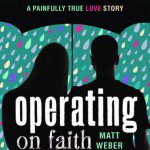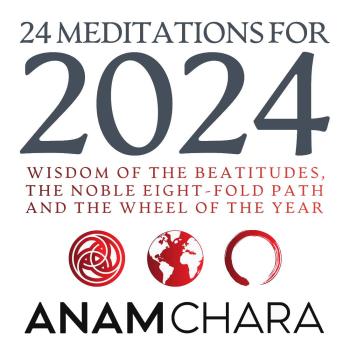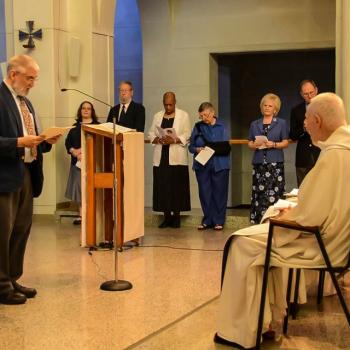
I once heard Richard Rohr tell a charming story of giving a retreat at the Abbey of Gethsemani, where Thomas Merton lived. Rohr was surprised to find that not all the monks particularly cared for Merton. When he asked about this, one of the brothers said, “Merton told us we weren’t contemplatives, we were just introverts!”
It’s a sweet story and the audience chuckled when we heard it, but it does point to an interesting question: what connection is there between personality type and prayer type?
A friend of mine on Facebook brought up this question recently. She asked me if there is a “relationship between being an extrovert or introvert and contemplation.” Before I had a chance to reply, another friend chimed in: “I did my Doctor of Ministry research on this topic. In short, I couldn’t find a definitive difference between the two types and contemplative practices, which, frankly, surprised me.”
Now, I don’t have a body of research under my belt, nor am I a psychologist, so my thoughts on this question are simply reflections shaped by my own intuition and experience. With that disclaimer in mind, here’s my thought:
Contemplative prayer is for everyone, regardless of personality type. However, the way we embrace contemplation may be shaped by our personality.
The topic of “personality type” makes me think of the Myers-Briggs Type Indicator, a test anyone can take to assess what their personality type is like. Based on Jungian psychology, the MBTI considers four basic distinctions — introverted or extroverted, sensible or intuitive, thinking or feeling, decisive or perceptive — with sixteen possible “types” based on these distinctions.
When I take the test, I usually (but not always) score as INFP: introverted, intuitive, feeling, perceptive. Now somewhere — I don’t remember where — I read that INFPs are the most “contemplative” of the sixteen personality types. Which I find reassuring, since I am devoting my life to writing about contemplation!
But even though I’m no scientist, this still gives me pause. The Myers-Briggs is a self-administered test; in other words, I get to choose how I think of myself or perceive myself. So does the test measure who I really am, or just who I think I am?
Put another way: am I a contemplative because I am an INFP, or, do I describe myself as an INFP because that “fits” with my self-image as a contemplative?
See? It’s tricky. And Merton’s words, as reported by Rohr, keeps echoing in my mind: being an introvert does not make one a contemplative.
Even as I wrote the above paragraphs, my humility-buzzer was going off. I really don’t like calling myself “a contemplative,” I think it’s more accurate to say I’m a contemplative practitioner or an aspiring contemplative — or even just a contemplative Christian.
In other words, we become contemplatives by the grace of God; it’s not something we choose so much as we receive. Now, having said that, I do believe God desires to give the grace of contemplation to everyone, so maybe it’s not so bad to call myself a contemplative — as long as I am clear that it’s a pure gift from God.
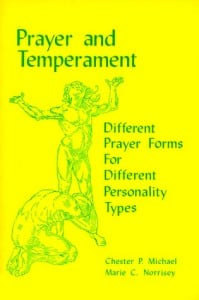 Books have been written about the spirituality of the different personality types, such as Prayer and Temperament: Different Prayer Forms for Personality Types by Chester Michael and Marie Norrisey; and Knowing Me, Knowing God: Exploring Your Spirituality with Myers-Briggs by Malcolm Goldsmith. I haven’t read these books, so I don’t want to knock them (although I can’t endorse them either); but I must admit that I think it would be sad if someone read a book like this and decided that a particular way of praying wasn’t for them, just because they were the “wrong” personality type.
Books have been written about the spirituality of the different personality types, such as Prayer and Temperament: Different Prayer Forms for Personality Types by Chester Michael and Marie Norrisey; and Knowing Me, Knowing God: Exploring Your Spirituality with Myers-Briggs by Malcolm Goldsmith. I haven’t read these books, so I don’t want to knock them (although I can’t endorse them either); but I must admit that I think it would be sad if someone read a book like this and decided that a particular way of praying wasn’t for them, just because they were the “wrong” personality type.
I think rather than saying “INFPs are natural contemplatives, and ESTJs would naturally prefer the Ignatian exercises, etc. etc.” I think it’s more useful to think along these lines: Contemplation — wordless prayer in which we gaze on Jesus and the mysteries of his life with faith and love — is for everyone, regardless of your personality type. But how we enter contemplative prayer may vary based on our interests and preferences.
Here are a few thoughts along these lines:
- Introverts might be more comfortable with pure silent prayer, whereas extroverts might enjoy something like walking a labyrinth, or silently doing something creative (painting, pottery) as a way of “being with God”;
- Sensory-oriented people might find contemplation in yoga, while intuitives might prefer learning to practice zen meditation;
- For thinkers, contemplation means finding mental clarity in silence; for feelers, it means resting one’s awareness in the silent love in the heart;
- The decisively-minded emphasize daily discipline (silent prayer for twenty minutes in the morning and in the evening), while the more perceptively-minded simply wants to learn how to “practice the presence of God” all day.
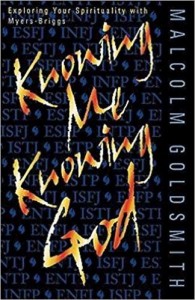 The Catholic Catechism describes contemplation first and foremost as “wordless prayer.” What I see in this, not just for Catholics but for all contemplatives, is that the heart of contemplation is silence — internal as well as external.
The Catholic Catechism describes contemplation first and foremost as “wordless prayer.” What I see in this, not just for Catholics but for all contemplatives, is that the heart of contemplation is silence — internal as well as external.
Silence can be found in all of our hearts, regardless of our personality types. Silence is a gift from God, and is freely given to everyone.
Sure, maybe an introvert might be quicker to see the beauty of silence than an extrovert. And maybe not. But once the extrovert beholds that splendor, he or she can be just as filled with the grace of beholding it as any introvert.
Some wise person once said, “Pray as you can, not as you can’t.” Pray as you can, not just according to your personality type. Sure, books like the ones mentioned above might be helpful in giving us suggestions of prayer forms to explore, especially in light of our personalities. But don’t limit yourself to the forms of prayer that some expert somewhere says is right for you. What’s right for you is the way of praying that you keep returning to, that allows you and enables you to pray every day. That’s what it means to “pray as you can.”
However you pray, however you approach the mystery we call God, take the time to make silence a regular and ongoing part of your practice. Do this, and trust that God, when the time is right, will lead you to the threshold of contemplation. Just don’t be surprised if your threshold of silence looks different from mine. There are many paths up the mountain. Find the one that’s right for you, and keep climbing.
Enjoy reading this blog?
Click here to become a patron.



